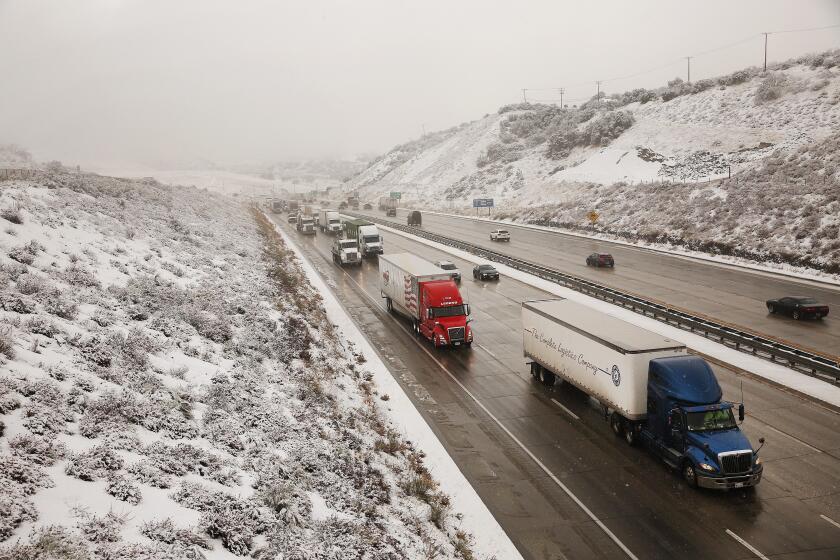Senate OKs Transit Bill That Bans Smoking on All Jets
Smoke-free airplane cabins, already commonplace on domestic routes, would become mandatory on international flights under provisions of a $41.7-billion transportation bill overwhelmingly passed Friday in the Senate.
The bill, approved by a 90-1 vote, provides record spending for highways, transit and airport improvements.
After some back-room haggling Thursday night, senators approved by voice vote a series of amendments dealing with issues ranging from the smoking ban to the TWA Flight 800 crash and Federal Aviation Administration funding.
Sen. Richard Durbin (D-Ill.) earned approval for the proposal to ban smoking on international flights.
It gives the Transportation secretary four months to require air carriers to prohibit smoking on domestic flights, as well as those “between a place in the United States and a place outside the United States.”
While U.S. carriers already prohibit smoking on domestic flights and many of their international routes, many foreign carriers still allow it on long-haul flights originating in the United States.
Another amendment, offered by Sen. Richard C. Shelby (R-Ala.) on behalf of Sen. Alfonse M. D’Amato (R-N.Y.), would require the National Transportation Safety Board to reimburse New York and its counties $6.1 million for costs connected to the TWA crash.
The plane exploded shortly after taking off for Paris from John F. Kennedy International Airport on July 17, 1996. All 230 people aboard died. Federal safety investigators continue to investigate the cause of the crash.
An amendment offered by Sens. Frank R. Lautenberg (D-N.J.) and John F. Kerry (D-Mass.) would include information on airline tickets about how much the government spends subsidizing the FAA.
That is a response to language Shelby inserted in the bill requiring Amtrak, the national railroad, to print its government subsidies on train tickets. The subsidy averages about $47 per passenger, he said.
The transportation bill proposes $27 billion for the Federal Highway Administration, $9.85 billion for the FAA and $5.36 billion for the Federal Transit Administration.
Among other proposed spending: $2.1 billion for airport improvements, $555 million for Amtrak and $200 million for the Appalachian Development Highway System.
The bill is the first attempt at laying out federal transportation spending for the 1999 fiscal year, which starts Oct. 1.
More to Read
Sign up for Essential California
The most important California stories and recommendations in your inbox every morning.
You may occasionally receive promotional content from the Los Angeles Times.










